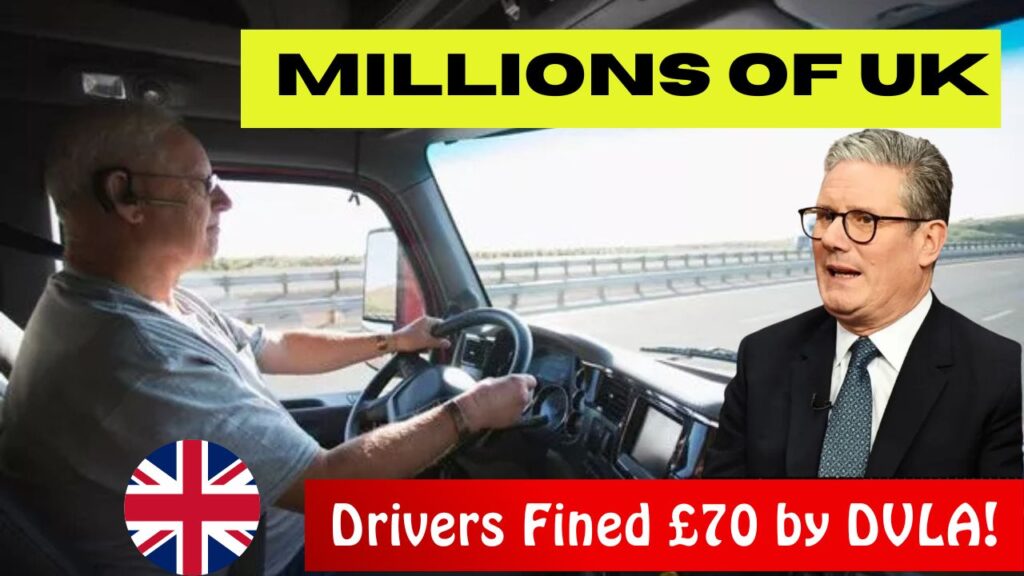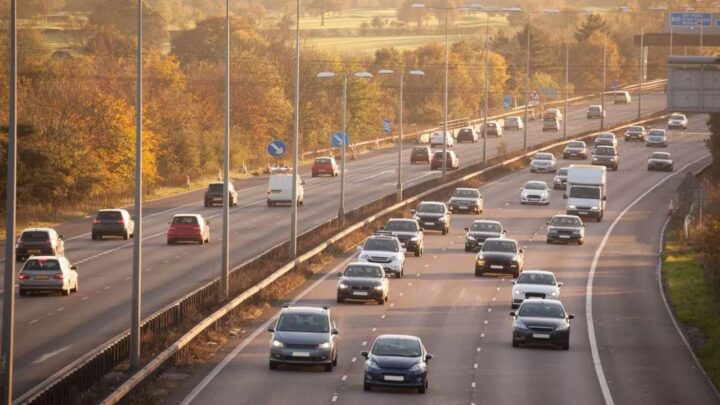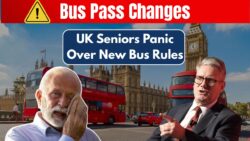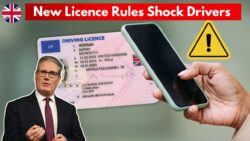Millions of UK drivers are facing unexpected £70 fines after the DVLA (Driver and Vehicle Licensing Agency) shared driver details with local councils and private parking operators. These fines are being issued for parking violations, congestion zone breaches, and vehicle tax issues. Many motorists have expressed frustration over what they call “unfair penalties” and “data misuse,” especially as automated systems now detect even the smallest infractions. The move is part of a broader enforcement push under 2025 vehicle compliance laws aimed at improving road safety and ensuring all vehicles are legally maintained and taxed.

DVLA Data Sharing and Driver Penalties in 2025
The DVLA’s latest data-sharing initiative allows local authorities and private firms to access driver records for enforcement purposes. This step, though legal, has sparked public concern due to privacy implications. Councils use these details to identify registered keepers of vehicles caught by cameras in no-parking zones, low-emission areas, or for unpaid road taxes. According to reports, more than 2.5 million UK drivers have been fined since January 2025. The DVLA insists that data is only shared under strict conditions and that all fines are issued lawfully under the Road Traffic Act.
- Fines can be as high as £70 per infraction.
- Most penalties are linked to parking or low-emission zone breaches.
- Data sharing is regulated under GDPR and UK data protection laws.
New Enforcement Measures and Vehicle Compliance Checks
From March 2025, new vehicle compliance cameras have been rolled out across England, Wales, and Scotland. These systems automatically detect uninsured, untaxed, or MOT-expired vehicles. The DVLA collaborates with councils to issue penalty notices based on camera evidence. Drivers who fail to respond to warning letters can face increased fines or vehicle clamping. The National Motorists Association has urged drivers to regularly check their vehicle tax, MOT, and insurance status through official DVLA portals to avoid unexpected penalties.
- Automatic Number Plate Recognition (ANPR) systems expanded nationwide.
- Over 40% increase in fines compared to 2024.
- Non-compliant vehicles risk being towed or immobilized.
Public Reaction and Legal Appeals for Unfair Fines
Many UK motorists have called the new system “unfair,” arguing that councils and private parking companies profit from DVLA data. Legal experts say drivers can appeal if they believe fines were issued in error or without valid photographic proof. The government maintains that the process ensures fairness, as every fine comes with clear evidence and appeal rights. Citizens are encouraged to read fine notices carefully and respond within the statutory 28-day appeal window to avoid escalation.
- Motorists can appeal through the Traffic Penalty Tribunal or POPLA.
- Evidence like photos or timestamps must be reviewed before payment.
- Failure to appeal on time can double the fine amount.

Fine Breakdown and Affected Areas Across the UK
Below is an overview of the areas most affected by DVLA’s data sharing and the corresponding fine amounts reported in early 2025. Major urban regions like London, Birmingham, and Manchester have seen the highest increase in penalties due to stricter low-emission and parking zone rules.
| Region | Common Offence | Average Fine (£) | Number of Fines (2025) |
|---|---|---|---|
| London | Congestion Zone Violation | £70 | 850,000+ |
| Birmingham | Low Emission Zone Breach | £60 | 420,000+ |
| Manchester | Illegal Parking | £50 | 380,000+ |
| Leeds | Unpaid Vehicle Tax | £70 | 250,000+ |
| Glasgow | Expired MOT Detection | £65 | 200,000+ |
FAQs
Q1: Why is the DVLA sharing driver details with councils?
To help enforce traffic and tax laws through automatic systems.
Q2: Can I appeal a fine issued through DVLA data?
Yes, you can appeal via the relevant tribunal within 28 days.
Q3: Are these fines legal under UK law?
Yes, all penalties are issued under the Road Traffic and Vehicle Excise Acts.
Q4: How can I avoid being fined?
Keep your vehicle tax, MOT, and insurance up to date and follow parking rules.




